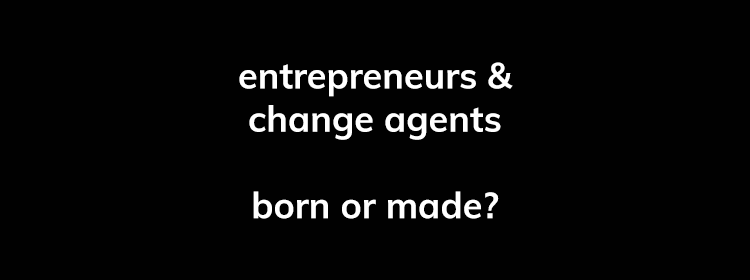
Are successful entrepreneurs and change agents born or made? This is an important question because it can affect how people see themselves and what they aim for.
Let’s start first with some basic definitions:
Entrepreneur: Entrepreneurship is defined as the act of starting and running your own business or a tendency to be creative and wish to work for yourself in your .....


New Article Email Notification